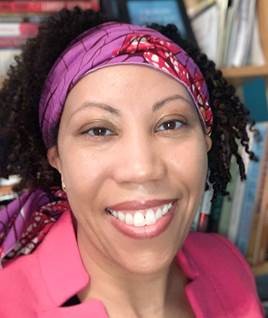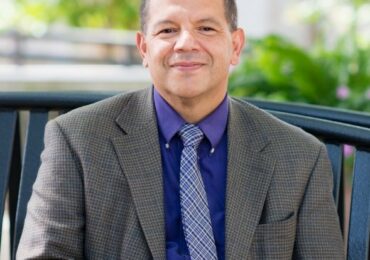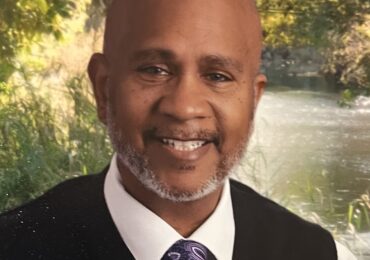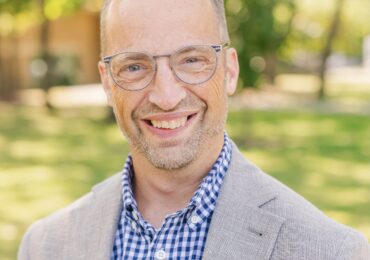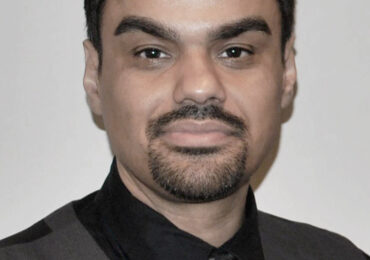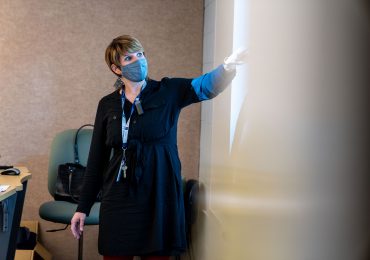On September 14, 2022, Rev. Rosalyn Bates led a training session for Trinity faculty and staff on Mental Health & DEI. The workshop is the first in a series presented by Mosaic, a new Trinity initiative for diversity, equity, and inclusion. Mosaic is led by Dynitta Lieuwen, Special Assistant to the Provost and Chair of Staff Council, and Dr. La Tonia Winston, Director of Learning and Teaching Success and Assistant Professor of Education. The Center for Teaching and the Good Life is privileged to partner with Mosaic for this series. The following is the transcript of a conversation between Rev. Bates and Dr. Mark Peters, director of the Center for Teaching and the Good Life.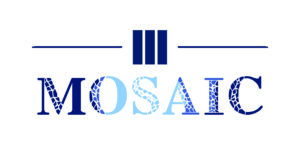 MP. Rosalyn, thank you very much for talking with me today. It’s a pleasure to have you here at Trinity and to have a chance to talk with you about your work in relation to both Mosaic and the Center for Teaching and the Good Life.
MP. Rosalyn, thank you very much for talking with me today. It’s a pleasure to have you here at Trinity and to have a chance to talk with you about your work in relation to both Mosaic and the Center for Teaching and the Good Life.
RB. Thank you so much. I’m honored to be here and to be part of what God is doing on this campus.
MP. Could you please begin by telling us a bit about how your background and training led to your work in mental health and DEI?
RB. My background and training influence my understanding of what it means to be a Christian. My background includes Christian education in my early formative years, which I think was foundational to my current vocation and also my learning experience over many years. My experience and training specifically involve intersections of culture and psychology. I grew up listening to radio programming that presented mental health from a Christian perspective, and I had this idea of eventually becoming the next James Dobson. So that was my dream as a young person. I grew in my understanding about what that could look like. Right now, I’m doing a lot of what I dreamed of in terms of helping people who are in Christian circles understand culture better and connect more authentically with respect to culture. On the mental health side as a clinician, I’m helping people remove barriers in their lives that prevent them from flourishing and living to their maximum potential.
MP. One of Trinity’s goals for all students, stated in our Foundations Learning Outcomes, is that they develop vocations that include and extend beyond career or work. So thinking of vocation as what God calls us to in all of life, could you please tell us about a particular time in your life when you felt called by God into a new aspect of your vocation or a new way of thinking about vocation?
RB. This has a very concrete explanation in my timeline. I remember being at Wheaton College for my graduate work and feeling a nudge. I was there to study clinical psychology in a Master’s program, and I felt God tugging me about preaching. And that was not the first tug. I was very afraid to explore and discern that tug, and I didn’t understand how clinical psychology and preaching would intersect. But as I continued in the call by faith pursuing seminary work, taking a preaching class in seminary led me to hear the voice of God explaining why I went to seminary as a clinician. I sensed that God was speaking to me saying, “The closest that some people will come to the counseling room will be when you come into the pulpit. So my pastoral care approach is distinguished by an understanding of people’s mental health and their needs as persons who have very human struggles. I see how that’s intertwined with their spiritual journey and their formation. God helped me see the intersection of mental health and pastoring, and so I carry those lenses with me. I navigate life with them, and I enjoy sharing my insights about them with others.
MP. I just heard you talk about how your training as a counselor informs your pastoral work. Are there ways that you see your pastoral calling informing your work as a counselor?
RB. Yes, I see them both as two sides of the same coin. Sometimes they have different languages, but I’m able to see them as interconnected. I think that people are coming to the clinical space for help. People attend church for those same reasons. They need to address certain issues or behavioral patterns. They’re trying to enhance their relationships. I can see what that looks like pastorally and ways that pastors or ministers or clergy and pastoral staff can identify those types of issues from a congregational perspective. The pastoral calling reminds me as a counselor to direct and guide people toward the right paths.
MP. I think the next question is related: How do you how do you see your work in relation to mental health and DEI as joined with Gods work in the world?
RB. Actually, I didn’t realize it before, but as I was preparing for the presentation, I realized how naturally the DEI terminology and goals intersect with mental health goals. Both involve helping people live and understand themselves authentically. That relates to the reality that we are created by God and created in God’s image, after God’s likeness. Our culture is one of the aspects of God’s creation, and it’s to be honored, valued, cherished, and esteemed. We as fallen creatures have experienced a lot of brokenness around culture, and the brokenness is part of total depravity. But if we’re paying attention, we can be agents of change and transformation, part of God’s restoration process. That’s how I see my work.
MP. That’s beautiful, thank you. The Center for Teaching and the Good Life considers teaching to be everything that staff and faculty do in relation to students, whether that’s in the classroom, outside the classroom, in financial aid, in student life, on the soccer field, etc. Are there ways that you could suggest that Trinity staff and faculty could draw on what we learned from your presentation to apply to our work with students?
RB. We can begin to see each other in our beauty and our vulnerability and have authentic relationship; that’s the way God approaches us. I think we have a lot to learn through and from each other. Even ordinary interactions can be extraordinary in their impact. So just living authentically, having conversations, being transparent, being honest and open about our humanity. That’s what it’s about. We’re here on Earth to be agents of God’s Kingdom together.
MP. Thank you. That connects really well with my final question. This is a central question of the Center for Teaching and the Good Life, and one that we talk about regularly ourselves and with any guests we’re privileged to encounter. From the perspective of your work and particularly your presentation today, how would you address the question: How can our vision of vocation and the good life be accessible for all persons?
RB. The first thing that comes to mind is the verse that says, “Seek first the Kingdom of God and his righteousness, and all things will be added.” Many people pursue a good quality of life, and God also says to us through the words of Jesus, that if you seek your life, you’ll lose it, but if you lose it for God’s sake, you will find it. I think this in some way captures the journey that we’re all taking. Sometimes we have defined success and achievement in a certain way, when God looks at it differently. When it comes to this whole pursuit of living authentically and understanding our culture in a way that reflects how God sees us, there are some costs or losses that we may encounter, but they really are gain in the Kingdom of God. If we pursue God’s agenda, then we have everything to gain.
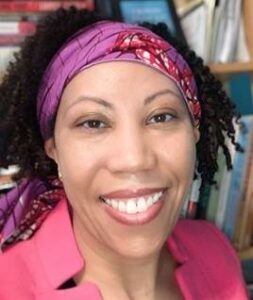
Rosalyn Bates is a licensed
clinical professional counselor who works at a behavioral health hospital in
suburban Chicago. She earned a Bachelor’s degree in Education and Social Policy
from Northwestern University, a Master’s degree in Clinical Psychology from
Wheaton College, and a Master of Divinity degree from McCormick Theological
Seminary. She is an ordained minister who currently serves as Staff Pastor and
Director of Ministries at Southside Worship Center under the leadership of
Pastor Titus Lee. She is an Adjunct Professor of Pastoral Care and Counseling and
founder of Rosgarden Productions LLC, an organization that is committed to
helping people flourish by providing them with educational tools and featuring
topics that intersect pastoral care and mental health.


